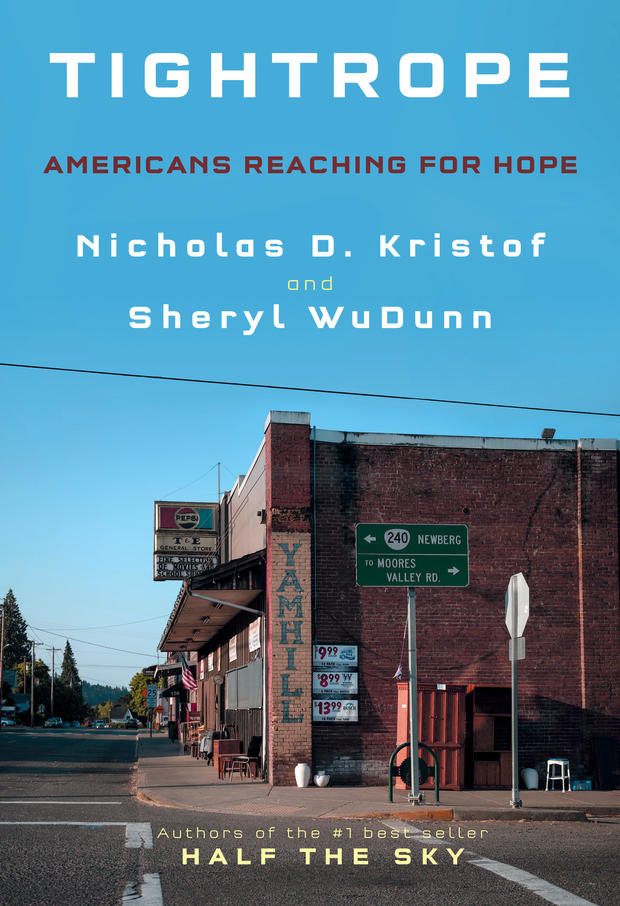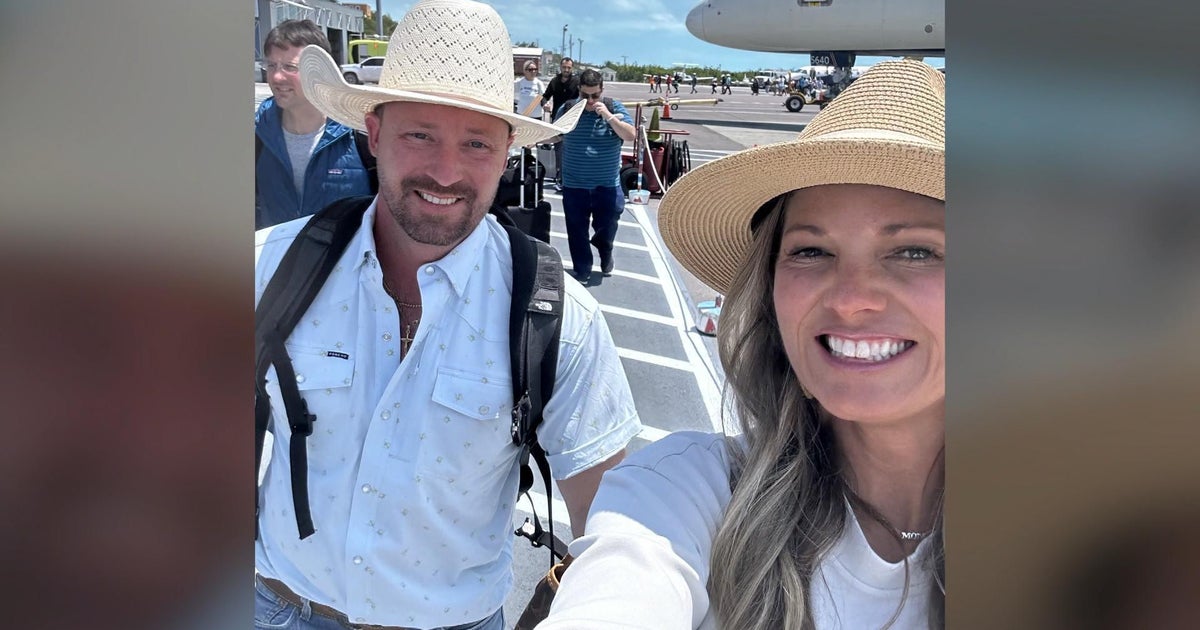Walking a tightrope: The precarious balance for working-class America
Authors Nicholas Kristof and Sheryl WuDunn, the first married couple to share a Pulitzer Prize for journalism, knew there was a problem when they noticed similarities between the humanitarian crises they covered as foreign correspondents in the developing world and scenes from Kristof's hometown in rural Oregon.
"We came to this, really, because I'm still very close to the kids on my old school bus in Yamhill, Oregon," Kristof told "CBS This Morning" co-host Tony Dokoupil on the "CBS This Morning" podcast. "Our paths diverged, but we remain buddies. And a quarter of those kids on my old school bus are now gone from deaths of despair."
Deaths of despair include deaths from complications related to years of alcohol abuse, drug overdoses, suicides and reckless accidents. These issues plague working-class communities across the country that are experiencing stagnant wages, weak education and lack of health care.
Kristof and WuDunn document how these obstacles, paired with poor decision-making, lead people in both rural and urban communities to struggle to stay afloat, in their new book "Tightrope: Americans Reaching For Hope."
"I don't think, frankly, that we in journalism have adequately conveyed the pain and desperation that is out there in a lot of America. For many Americans, this is like the Great Depression," Kristoff said. "Except that even in the Great Depression, life expectancy was not falling for Americans three years in a row. And, at least in the Great Depression, you had a president and Congress that were trying desperately to counter it. And these days, I think for a lot of people, it feels like not only are there no efforts to counter it, but nobody's really even noticing it."
Globalization and automation were bound to make part of the workforce feel less useful, but WuDunn said reaching this level of discontent was not inevitable.
"Globalization is global. It affects all of all these other countries, especially our peer countries in Europe, and they're not exhibiting the same challenges that we are, to the degree that we are experiencing them."
She pointed to Portugal as an example. As the United States ramped up its war on drugs, spending billions of dollars to incarcerate drug users, Portugal decriminalized the use of all drugs in 2001.
"They actually decided to use a public health approach. And they actually, instead of putting these drug users in jail, they actually put them into rehabilitation. And it turned out to be very successful. And so they have dropped their overdoses by two thirds and they're the lowest country with drug overdoses in Europe, whereas in the U.S., we've got like millions more people in jail, partly because of this policy."
Kristoff said both Democrats and Republicans have their fingerprints on these problems, and while "Tightrope" delves into how decades of government policies have harmed blue collar workers, the authors also highlight the poor decision-making that can lead a person down a path of despair.
"At the end of the day, the people we write about, they don't want the reader's sympathy. What they want is dignity. And I think that in telling the stories, we conveyed that and gave them this sort of complicated sense of agency. Often it goes back to this personal responsibility question, which is complicated."
It's complicated, he said, because the popular "pull yourself up by the bootstraps" mantra used to mean the opposite of what it does now — an impossible task — and is now accepted as a prescription for what a person should do.
"Look, there are always gonna be disparities in the country, but we can do a little bit better in making that tightrope wider and putting in some netting and putting in some rigging and supporting kids," Kristof said. "And the reason we wrote this, maybe more than anything, is that in our trips back to Yamhill, we saw that the kids and grandkids of some of my old friends are really struggling because they've just grown up in dysfunctional homes sometimes. And it's too late to help those kids who were on the bus with me, but their kids and grandkids, you know, we need to fight for them."
Listen to Kristof and WuDunn's "CBS This Morning" podcast interview with Dokoupil to hear their take on how President Donald Trump captured the support of white working-class America, why Democrats have failed to communicate effectively with this constituency and why they are more hopeful about the future after researching and writing this book.





